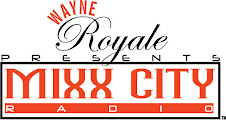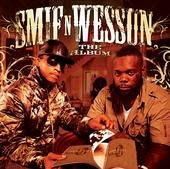The ABCs of Business Credit
Learn why it's important to establish a business credit report separate from your personal credit and just how to do it. By David Gass
As an entrepreneur, did you know you have a unique opportunity to build, maintain and acquire credit both individually and as a business owner? That's good news if you're trying to build and grow a company because you won't have to rely solely on your personal credit to do that.
As a member of the business credit industry, it's been my experience that fewer then 10 percent of all entrepreneurs know about or truly understand how business credit is established and tracked-and how it affects their lives and businesses.
So let's first take a look at how personal credit differs from business credit. Then we'll discuss some steps you can take to build your business credit.
Personal Vs. Business Credit
At the point an individual with a social security number accepts their first job or applies for their first credit card, a credit profile is started with the personal credit reporting agencies. This profile, otherwise known as a credit report, is added to with every credit inquiry, credit application submitted, change of address and job change. The information is typically reported to the credit bureaus by those who are issuing credit. Eventually, the credit report becomes a statement of an individual's ability to pay back a debt.
In some cases, the same is true for businesses. When a business issues another business credit, it's referred to as trade credit. Trade, or business, credit is the single largest source of lending in the world.
Information about trade credit transactions is gathered by the business credit bureaus to create your business credit report using your business name, address and federal tax identification number (FIN), also known as an employer identification number (EIN), which you get from the IRS. The business credit bureaus use this compiled data to generate a report about your company's business credit transactions. In many cases, those issuing credit to you will rely on your business credit report to determine if they want to grant you credit and how much credit they'll give.
The major business credit bureaus that compile and provide copies of the reports are:
Dun & Bradstreet/Experian Business/Equifax Business/Business Credit USA
Unfortunately, because the information provided to the business credit bureaus is sent in voluntarily--no business is required to send it in--the credit bureaus may never receive all or even any information about your business credit transactions. In fact, you could go for years racking up business credit without any of it being reported to the credit bureaus.
Establishing Business Credit
Let's start by talking about your business credit score. Business credit scores range on a scale from 0 to 100 with 75 or more considered an excellent rating. Personal credit scores, on the other hand, range from 300 to 850 with a score of 680 or high considered excellent.
It's important to note that there are many factors that affect a credit score; it's based on more than just whether you pay your bills on time. Your score can be affected by the amount of available credit you have on bank lines of credit and credit cards, the length of time you've had a credit profile, the number of inquiries made on your credit profile and more. You can find out more about what factors affect your credit rating by visiting www.myfico.com.
The mistake many business owners make is using their personal information to apply for business credit, leases and loans. By doing so, they risk having a lower personal credit score.
Why is that? The average consumer credit report gets just one inquiry per year and has 11 credit obligations, typically broken down as 7 credit cards and 4 installment loans. Business owners are not your average consumer, however, because they carry both personal and business credit. This typically doubles the number of inquiries made to their personal credit profile and the number of credit obligations they carry at any given time, all of which negatively impact their personal credit score. And because business inquiries and personal inquiries aren't separated on their personal credit report, the scores, again, is negatively affected. At the same time, by using their personal credit history to get business credit, they're not able to build their business score, which could help them attain critical business credit in the future.
The key to establishing a business credit profile and score is to find companies that will establish credit for your business without using your personal credit information and then report the payment experiences to the business credit bureaus. By reporting the information to the proper agencies, they'll help you establish your business credit profile.
The following are the basic steps you need to take to establish your business credit profile and score:
1. Form a corporation or LLC to operate your business under and obtain an FIN or EIN from the IRS. You can apply for an EIN number at the IRS website.
I'm suggesting you form a corporation or LLC as opposed to structuring your business as a sole proprietorship or partnership because with a sole proprietorship or partnership, your personal credit information could be included on your business credit report--and vice-versa. In addition, as a sole proprietor or partner in a partnership, you're personally liable for the debts of the business and all your personal assets are at risk in the event of litigation.
Corporations and LLCs, on the other hand, afford business owners liability protection, and you can build a business credit profile that's separate from your personal debts. You may be able to apply for credit under your business's name and obtain credit without a personal credit check or guarantee if the credit grantor will do so--and it's been my experience that often all you have to do is ask.
2. Register your company with the business credit bureaus.
3. Comply with the business credit market requirements. It's extremely important for businesses to meet all the requirements of the credit market in order to ensure a higher likelihood of credit approval. In fact, not being in compliance with the credit market can raise red flags with both credit bureaus and grantors. The red flags include such simple things as not having a business license or a phone line. Most businesses will not grant credit to another business that hasn't taken the steps to set the company up with the proper licenses and local, state and federal requirements. You can research the list of business credit market requirements at iBank.com.
4. Prepare financial statements and a professional business plan. These documents are often required by many credit grantors.
5. Find companies willing to grant credit to your business without a personal credit check or guarantee.
When a company grants your business credit, be certain they report the payment experiences you have with them to the business credit bureau to help build your business credit report and a financial foundation for your company.
6. Manage your debt so you don't fall into trouble making your payments, which will negatively affect your credit score.
7. Make monthly payments to credit grantors to keep your business credit profile active.
At some point, almost every business needs some type of credit. To avoid having to use your personal credit history or guarantees and to obtain the best possible terms, start the steps necessary to build a business credit profile now before you really need it.
 Life is short, and so often human nature allows us to live the present, while forgetting about the future and the possibilities of sudden unexpected events.
Life is short, and so often human nature allows us to live the present, while forgetting about the future and the possibilities of sudden unexpected events.







.jpg)



.jpg)







.jpg)




.jpg)





.jpg)

.jpg)






































.jpg)

